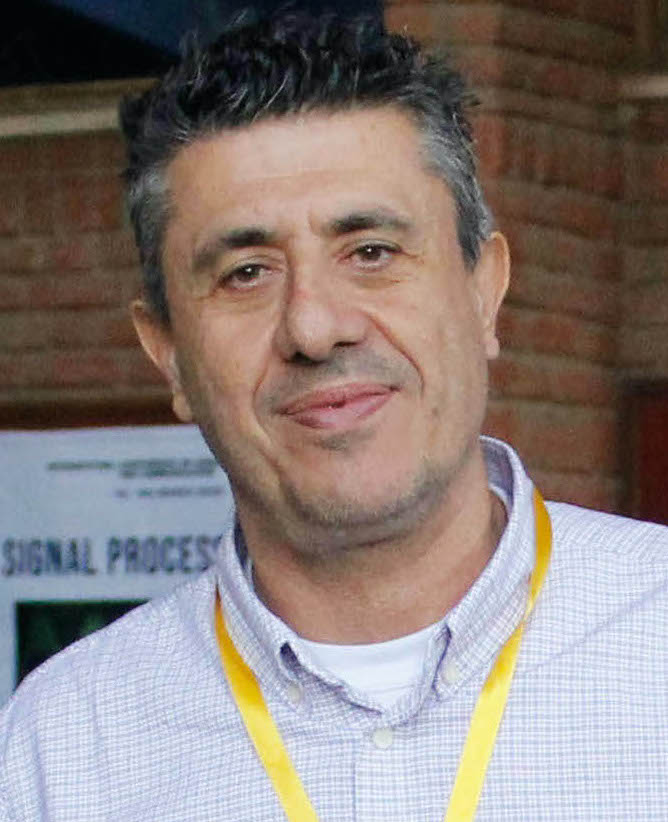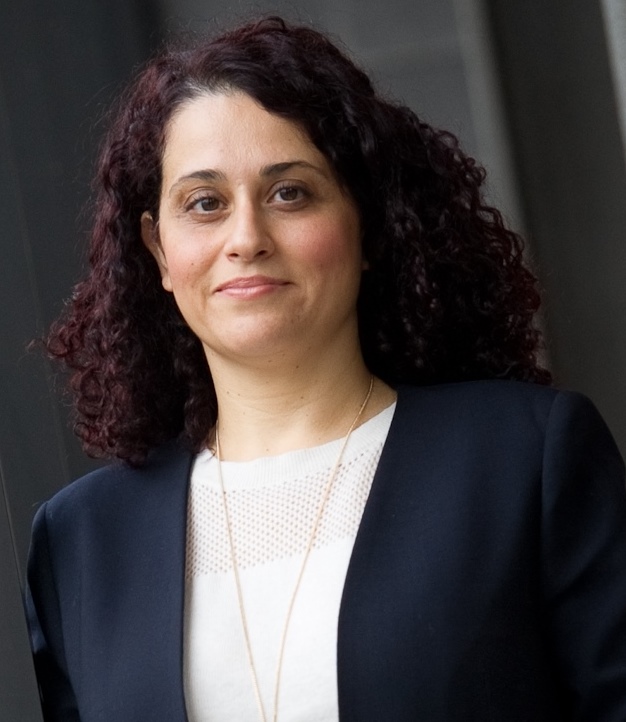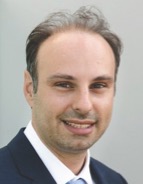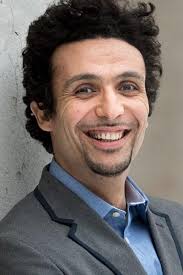The 3rd International Conference on Advanced Communication Technologies and Networking 2020 (CommNet'20)
Plenary Speakers
Speaker 1

George K. Karagiannidis
Aristotle University of Thessaloniki, GreecTitle : The Optical Wireless Paradigm in Biomedical Engineering
Bio :
George K. Karagiannidis is currently Professor in the Electrical & Computer Engineering Dept. and Director of Digital Telecommunications Systems and Networks Laboratory. He is also Honorary Professor at South West Jiaotong University, Chengdu, China. His research interests fall in the broad area of Digital Communications Systems and Signal processing, with emphasis on Wireless Communications (RF and Optical), Satellite Communications, Wireless Power Transfer and Communications for Biomedical Engineering. He is author or co-author of more than 550 technical papers published in scientific journals and presented at international conferences. He is also co-author of the book “Advanced Optical Wireless Communications Systems”, Cambridge Publications, 2012. From 2012 to 2015 he was the EiC of IEEE Communications Letters and currently he is Associate EiC of IEEE Open Journal of Communications Society. Dr. Karagiannidis is one of the highly-cited researchers across all areas of Electrical Engineering, recognized in the five consecutive years 2015-2019 from Clarivate Analytics as Web-of-Science Highly-Cited Researcher
Speaker 2

Melike Erol-Kantarci,
University of Ottawa, CanadaTitle : AI-enabled Transactive Energy Systems and the Role of Communications
Abstract:
Renewable energy resources are underutilized worldwide, regardless of geography or economy. This is partly due to the challenge of integrating a large number of small-scale, distributed renewable energy generators to the utility power grid; and partly due to the intermittency and cost of such resources. The current practice for installing small generators is to invest for capacity that only meets the average demand of the consumers with rigid contracts, simply because in general, there is no stake in surplus energy from prosumers. In this talk, we introduce novel AI-based tools that will allow a P2P energy trading platform consisting of microgrids to become a part of the future transactive energy systems. Energy trading among microgrid communities promises to make use of the renewable energy more efficiently and strengthen the resilience of the power grid during disasters and attacks. Despite the advantages of a P2P energy trading platform, there are several challenges that need to be addressed. First, reliable and low-latency communication among the peers is necessary to allow real-time negotiation of trading decisions. Second, uncertainties that result from generation, demand or participant behavior need to be addressed. In this talk, we will introduce our recent results on low-latency communications in microgrids that use reinforcement learning. In addition, we will introduce our correlated deep q-learning based techniques that address uncertainty and improve energy trading decisions in transactive energy systems.
Bio :
Melike Erol-Kantarci is Tier 2 Canada Research Chair in AI-enabled Next-Generation Wireless Networks and associate professor at the School of Electrical Engineering and Computer Science at the University of Ottawa. She is the founding director of the Networked Systems and Communications Research (NETCORE) laboratory. She has over 140 peer-reviewed publications which have been cited over 5000 times and she has an h-index of 36. She is selected to the 2019 list of “N2Women: Stars in Computer Networking and Communications” along with 8 other distinguished scientists. She has received the IEEE Communication Society Best Tutorial Paper Award and the Best Editor Award of the IEEE Multimedia Communications Technical Committee in 2017, in addition to several other best paper awards. She is the co-editor of three books on smart grids and smart cities. She has delivered 40+ tutorials, plenary talks and seminars around the globe. She has acted as the general chair or technical program chair for many international IEEE conferences and workshops. Most recently, she is the TPC co-chair for IEEE CAMAD 2020, a symposium co-chair for Globecom 2020, and a track co-chair for IEEE SmartGridComm 2020. She is a senior member of the IEEE. Her main research interests are AI-enabled wireless networks, 5G and 6G wireless communications, smart grid, electric vehicles, Internet of things and wireless sensor networks.
Speaker 3

Ioannis Krikidis
University of Cyprus, CyprusTitle : Wireless Powered Communications: Overview,Recent Results, and Challenges
Abstract:
Conventional energy-constrained wireless systems such as sensor networks are powered by batteries and have limited lifetime. Wireless power transfer (WPT) is a promising technology for energy sustainable networks, where terminals can harvest energy from dedicated electromagnetic radiation through appropriate electronic circuits. The integration of WPT technology into communication networks introduces a fundamental co-existence of information and energy flows; radio-frequency signals are used in order to convey information and/or energy. The efficient management of these two flows through sophisticated networking protocols, signal processing/communication techniques and network architectures, gives rise to a new communication paradigm called wireless powered communications (WPC). In this talk, we discuss the principles of WPC and we highlight its main network architectures as well as the fundamental trade-off between information and energy transfer. Several examples, which deal with the integration of WPC in modern communication systems, are presented.
Bio :
Dr. Ioannis Krikidis received the diploma in Computer Engineering from the Computer Engineering and Informatics Department (CEID) of the University of Patras, Greece, in 2000, and the M.Sc and Ph.D degrees from Ecole Nationale Superieure des Telecommunications (ENST), Paris, France, in 2001 and 2005, respectively, all in electrical engineering. From 2006 to 2007 he worked, as a Post-Doctoral researcher, with ENST, Paris, France, and from 2007 to 2010 he was a Research Fellow in the School of Engineering and Electronics at the University of Edinburgh, Edinburgh, UK. He is currently an Associate Professor at the Department of Electrical and Computer Engineering, University of Cyprus, Nicosia, Cyprus. His current research interests include wireless communications, cooperative networks, 4G/5G communication systems, wireless powered communications, and secrecy communications. I. Krikidis is an IEEE Fellow (class 2019) and he has received the prestigious ERC consolidator grant.
Speaker 4

Mehdi Bennis,
University of Oulu, FinlandTitle : Extreme Ultra-Reliable and Low-Latency Communication
Abstract:
This talk aspires at providing a fresh and in-depth look into URLLC by first examining the limitations of 5G URLLC, and putting forward key research directions for the next generation of URLLC, coined eXtreme ultra-reliable and low-latency communication (xURLLC). xURLLC is underpinned by three core concepts: (1) it leverages recent advances in machine learning (ML) for faster and reliable data-driven predictions; (2) it fuses both radio frequency (RF) and non-RF modalities for modeling and combating rare events without sacrificing spectral efficiency; and (3) it underscores the much needed joint communication and control co-design, as opposed to the communication-centric 5G URLLC.
Bio :
Dr Mehdi Bennis is an Associate Professor at the Centre for Wireless Communications, University of Oulu, Finland, Academy of Finland Research Fellow and head of the intelligent connectivity and networks/systems group (ICON). His main research interests are in radio resource management, heterogeneous networks, game theory and distributed machine learning in 5G networks and beyond. He has published more than 200 research papers in international conferences, journals and book chapters. He has been the recipient of several prestigious awards including the 2015 Fred W. Ellersick Prize from the IEEE Communications Society, the 2016 Best Tutorial Prize from the IEEE Communications Society, the 2017 EURASIP Best paper Award for the Journal of Wireless Communications and Networks, the all-University of Oulu award for research and the 2019 IEEE ComSoc Radio Communications Committee Early Achievement Award. Dr Bennis is an editor of IEEE TCOM and Specialty Chief Editor for Data Science for Communications in the Frontiers in Communications and Networks journal.
Speaker 5

Hong-Chuan Yang,
University of Victoria, CanadaTitle : Wireless Communications for Advanced Internet of Things: A Unifying Data-Oriented Approach
Abstract:
Wireless communication systems will play an essential role in data transmissions for future Internet of Things (IoT) applications. Future IoT applications generate data traffics of variable sizes and dramatically different quality of service requirements, ranging from ultra-reliable low-latency (URLL) transmission to extremely energy-efficient transmission. In this talk, we present a unique data-oriented approach for the design and analysis of wireless transmission systems for advanced IoT applications. Novel data-oriented performance metrics are proposed and applied to establish performance limits for individual data transmission sessions. We present several design examples to demonstrate how the data-oriented approach will facilitate a common physical transmission infrastructure for diverse traffic types. Finally, we conclude with several potential future research directions.
Bio :
Prof. Hong-Chuan Yang received the Ph.D. degree in Electrical Engineering from the University of Minnesota, Minneapolis, USA, in 2003. Dr. Yang is a professor of the Department of Electrical and Computer Engineering at the University of Victoria, Victoria, Canada. From 1995 to 1998, he was a Research Associate with the Science and Technology Information Center (STIC) of Ministry of Posts & Telecommunications (MPT), Beijing, China. His research covers various aspects of wireless communications, with special emphasis on the analysis and design of energy and spectral efficient transmission technologies. Dr. Yang has published over 200 referred journal and conference papers on these topics. He is the author of the book Introduction to Digital Wireless Communications (IET Publishing) and the co-author of the book Advanced Wireless Transmission Technologies (Cambridge Univ. Press). Dr. Yang is a senior member of IEEE and a registered professional engineer in BC, Canada.
Speaker 6

Ana García Armada,
Carlos III University of Madrid, SpainTitle : Recent advances in Non-Coherent massive MIMO
Bio :
Ana García Armada received the Ph.D. degree in electrical engineering from the Polytechnical University of Madrid in February 1998. She is currently a Professor at University Carlos III of Madrid, Spain, where she has occupied a variety of management positions (Head of Signal Theory and Communications Department, Vice-dean of Electrical Engineering, Deputy Vice-Chancellor of International Relations, among others). She is leading the Communications Research Group at this university. She has been visiting scholar at Stanford University, Bell Labs and University of Southampton. She has participated (and coordinated most of them) in more than 30 national and 10 international research projects as well as 20 contracts with the industry, all of them related to wireless communications. She is the co-author of eight book chapters on wireless communications and signal processing. She has published around 150 papers in international journals and conference proceedings and she holds four patents. She has contributed to international standards organizations such as ITU and ETSI and is member of the expert group of the European 5G PPP. She has served on the editorial boards of Physical Communication (2008-2017), IET Communications (2014-2017). Currently she serves on the editorial board of IEEE Communications Letters since 2016 (Editor until Feb 2019, Senior Editor from Mar-Aug 2019, now Area Editor; Exemplary Editor Award 2017 and 2018) and IEEE Transactions on Communications. She has served on the TPC of more than 50 conferences and she has been/is part of the organizing committee of IEEE Globecom 2021 (General Chair) and 2019, IEEE Vehicular Technology Conference (VTC) Fall 2018, Spring 2019 and 2018, IEEE 5G Summit 2017, International Symposium on Ubiquitous Networking (UNET) 2017, IEEE Third Women´s Workshop on Communications and Signal Processing 2016, European Conference on Networks and Communications (EuCNC) 2015, and the International Conference on Mobile Lightweight Wireless Systems (Mobilight) 2010. She has been the Newsletter Editor and is now the Secretary of the IEEE ComSoc Signal Processing and Consumer Electronics Committee. She was Secretary of the IEEE ComSoc Women in Communications Engineering Standing Committee (2016-2017) and is now the Chair of this committee (until end of 2019). She has received the Young Researchers Excellence Award, the Award to Outstanding achievement in research, teaching and management and the Award to Best Practices in Teaching, all from University Carlos III of Madrid. She has received the Otustanding service award from IEEE ComSoc Signal Processing and Communications Electronics Technical Committee (2019). She was awarded the third place Bell Labs Prize 2014 for shaping the future of information and communications technology. Her main interests are multi-carrier and multi-antenna techniques and signal processing applied to wireless communications.

